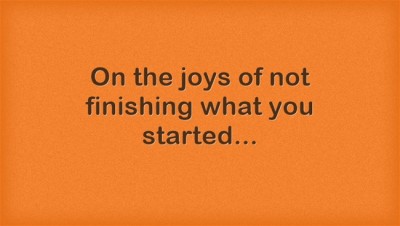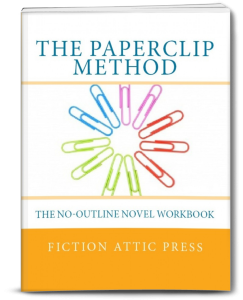3 Myths That Are Killing Literary Culture
1. Writers just want to be read.
I recently heard a young woman at a party say that writers don’t mind when their books are downloaded for free on the internet, because “writers just want to be read.”
As a working writer who pays my mortgage and buys groceries and sends my kid to summer camp with the proceeds from my books, I can tell you that this isn’t true. While I do want to be read, that isn’t my primary concern. My primary concern is making a living.
2. Writers don’t need to be paid for their work.
Let’s say you design and produce a T-shirt. Let’s say you sell the T-shirts for $20 each, and with the proceeds from these T-shirts, you pay your rent, buy coffee, pay off your student loans, pay the electric bill,go to the movies, buy a beer at the corner bar, etc.
Now, you may give your shirt to a few friends in order to drum up business. That’s called marketing, and it’s not much different from when publishers send out review copies of books to newspapers, magazines, and influential bloggers. You’re willing to give away a few shirts in the hopes that it will lead to sales.
Let’s say a bunch of people—a thousand, two thousand, ten thousand, half a million—come to you and say, “Hey, you should give us that shirt, because we’ll wear it, and when we wear your shirt, it’s going to be good for you.” What would you say? You’d probably turn them down. You’d probably point out that creating the shirt took time, effort, and resources. Maybe you studied graphic design to learn the skills that went into making that shirt. Maybe you worked at the mall for a few dollars an hour while you were figuring out how to arrange your life in a way that would allow you to do more fulfilling work. You’d probably point out that you didn’t make that shirt just to give it away. You need to sell the shirt, because that’s how you make a living, and the fact of someone wearing your shirt does absolutely nothing for you. It’s good for the person who gets the free shirt, but it is most definitely not good for you.
Don’t like the T-shirt example? Make it an app. Let’s say you spend time, money, and intellectual capital developing an app that you sell for $1.99. If thousands of people were to say to you, “Give me that app. I want to use it, but I don’t want to pay for it. If you give it to me, it will be good for you,” would you agree?
Authors make a living by selling our books. We write books that we hope will be good, books that we hope will be meaningful, but we also write books that we hope people will buy. We do not go to the store and walk out with a new pair of shoes or a new baseball bat or an ice cream cone without paying for them. We don’t expect the taxi driver to drive us to the airport for free, and we don’t expect the tech guy to fix our computer for free, and we don’t expect the piano teacher to give our kids piano lessons for free. We understand that when a service is provided, it is good practice to pay for it. We hope that others will show us the same courtesy.
When increasing numbers of readers decide they’re going to get our books for free by illegally downloading them, and when increasing numbers of libraries lobby for the “right” to lend digital copies of our books to anyone, anywhere, forever, without compensating the creators, authors don’t make a living.
In “The Slow Death of the American Author,” an opinion piece for The New York Times, Scott Turow points to the offshore pirate sites that offer illegal downloads of copyrighted books. Google and Bing serve ads to these pirate sites, and subscribers pay a fee to download content, so both the pirates and the mega-corporations are making big money off of the books they had no role in creating. Kim dot com gets another Rolls Royce, Google tops off its multi-billion dollar coffers, and PayPal gets a huge chunk of the pie. The only ones who aren’t being compensated for those books are the people who wrote them. The people who are downloading books and music illegally don’t mind paying the pirate, and they don’t mind sending a percentage to paypal; these entities are often praised as innovators. It is strange that the same people who happily to give money to the pirates believe that the writers and musicians who created the content are wrongheaded or selfish to ask for compensation. (The Trichordist has been writing on this subject for the music industry for some time now.)
If I stood on a corner telling people who asked where they could buy stolen goods and collected a small fee for it, I’d be on my way to jail. And yet even while search engines sail under mottos like “Don’t be evil,” they do the same thing. ~Scott Turow
The only people who can legitimately say, “Authors shouldn’t be paid for their books,” are people who happily go to their jobs for free. There’s a rallying cry among certain academics, librarians, and journalists that copyright is anti-culture, that all books should be free to all people, but I don’t know a single professor or librarian who doesn’t get paid to show up to the university or to the library. The same journalists who lambast authors are often salaried employees of newspapers and magazines that a)charge a subscription fee and b) pay the journalists for their content.
Traditionally, libraries purchase a hard copy of a book, which they then lend out to their patrons. I happen to be a longtime fan of libraries and the services they provide to the community. As an author, I have accepted the fact that I receive a royalty only on the copy the library purchases, not on the lending (although in Europe, authors do receive royalties each time their books are lent). It’s a model that American authors have by and large come to terms with, and, traditionally, there has been a friendly relationship between libraries and authors. Unlimited e-book lending, however, is an entirely different ballgame. For one thing, a physical book has a shelf life and must eventually be replaced, while an e-book may be lent forever from any location. By effectively ensuring that no reader will have any incentive to purchase an e-book, ever, it erases a huge chunk of the author’s royalties.
If you happen to be a professor or librarian who believes that information, including copyrighted books, should flow freely with no compensation for the creators of that information, or that publishers should offer books to libraries for free or next to free, or that soft copyright laws are essential to democracy, I urge you to put your money where your mouth is: the next time you receive a paycheck, return it. You are just happy to be able to go to work, right? You don’t do it for the money. (It also bears saying that libraries need content, and the content comes from somewhere, so when libraries lobby against fair compensation for authors, and when they remove the incentive to actually show up at the physical library to get a book, they are lobbying against their own existence.)
3. Writers make so much money, they shouldn’t mind if their books are illegally downloaded.
Advances for mid-list authors—that is, the vast majority of authors—are far from a living wage. The advance for my first book was $2,000. As I wrote the stories in the collection over a period of eight years, I wasn’t exactly raking it in. My second book, which took a much more reasonable three years to write, received an even smaller advance of $1,000—or about $333 per year. My third book, which took me more than four years to write, received an advance of $25,000, as did my fourth book, which, fortunately, only took one year to write. Obviously, during those years of writing I was making a living in other ways—from wiping down the beds at a tanning salon to selling credit processing machines all over New York City to teaching creative writing. For my next two books, I received a much bigger advance, but this only happened after one of my books, through some alchemy of good fortune and good timing, sold half a million copies. (Obviously, I did not do this alone; my book sold well because I had the support of booksellers and my agent and my editor and publisher, the very entities that piracy threatens to put out of business.)
My point here is that very few authors are making the big bucks. There are the mega bestsellers, of course, but the vast majority of authors make far less per hour than the barista at Starbucks or the person flipping those admittedly amazing burgers at In n’ Out. So when you say, “If I download this book for free, it doesn’t really hurt anybody,” you’re wrong. It hurts the person who made it.
I assume that most of the people who read this post do not illegally download books, music, or movies. But if you are a person who does that, I ask you to do one thing before you download the next book or song from a file sharing site: take a moment to visualize yourself reaching into that author’s purse, or that musician’s wallet, and stealing money. Are you comfortable with that image of yourself? If so, go ahead; download away.
Why this should matter to you.
If you’ve read a good book in the past few years, if you’ve read a book that moved you,a book that enlarged your world-view, a book that changed you, if you have ever read a book that made you want to be a writer or inspired you to be a reader, then remember where that book came from: an author who lives in the same world in which you live, an author who cannot download lunch, blue jeans, or an apartment for free.

 Believe it or not, that mess of papers on the floor of my dining room is now in galleys over at Random House. Which is to say that, what looks like nothing does become something, if you just have the patience to see it through. For the longest time, as I was working on that novel, it didn’t look as though it would ever come together. For the longest time, I was ready to give up. But then, in the end, it did. The process I’ve grown to trust once again paid off.
Believe it or not, that mess of papers on the floor of my dining room is now in galleys over at Random House. Which is to say that, what looks like nothing does become something, if you just have the patience to see it through. For the longest time, as I was working on that novel, it didn’t look as though it would ever come together. For the longest time, I was ready to give up. But then, in the end, it did. The process I’ve grown to trust once again paid off.
